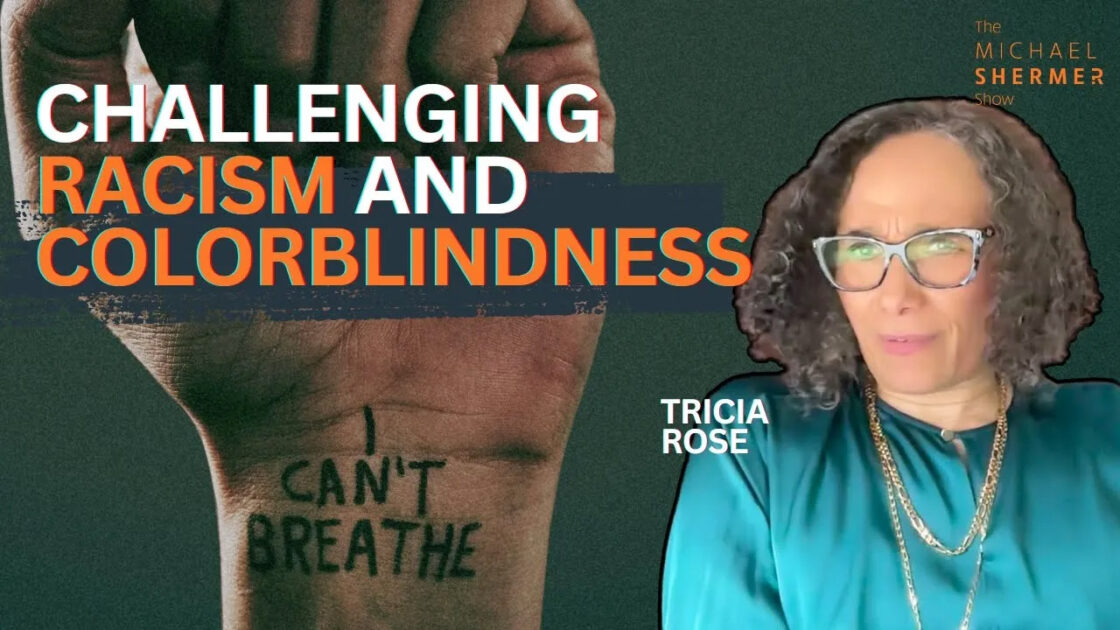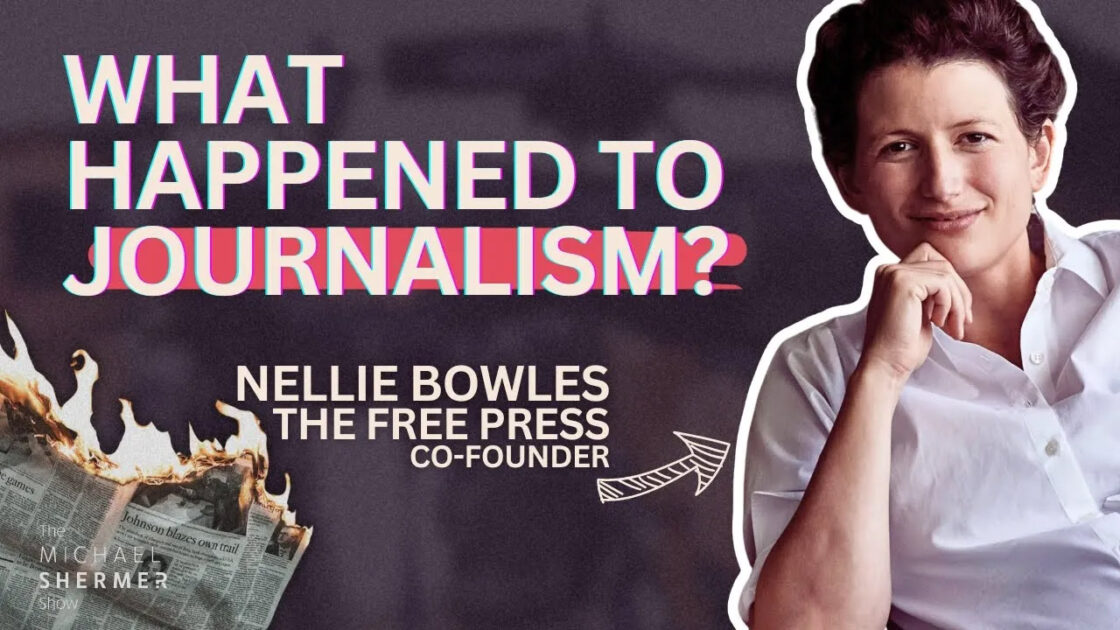Science Salon

Shermer and Junger discuss: his near-death experience and his curent beliefs • NDEs and OBEs • hallucinations • altered states of consciousness • sensed presence effect • sleep paralysis • why there is no “proof” of an afterlife • living forever • belief in life after death • empirical truths vs. mythic truths • longevity and how to live longer.

Struggling to find common ground in today’s politics? In this episode, conservative scholar Yuval Levin explores how the Constitution, often blamed for political discord, actually holds the key to unity. In his new book, American Covenant, Levin blends history and analysis to reveal the Constitution’s power in fostering constructive disagreement and practical reforms. Tune in for insights on the Constitution’s genius and how it can guide us to a less divided future.

In this episode, we explore conspiracy theories about the July 13 assassination attempt on President Donald Trump. Despite evidence suggesting shooter Thomas Matthew Crooks acted alone, theories implicate the Secret Service, foreign governments, and political groups. We examine cognitive and emotional factors driving these beliefs and emphasize applying the Conspiracism Principle: never attribute to malice what can be explained by randomness or incompetence.

Shermer and Bhattacharya discuss: his blacklisting on Twitter in response to his calling COVID-19 lockdowns the “biggest public health mistake we’ve ever made” • loss of trust in medical and scientific institutions • what went right and wrong with the COVID-19 pandemic • the cost to the economy and education • the Precautionary Principle • Which countries and states did better or worse? • Lab Leak hypothesis vs. Zoonomic hypothesis • RFK, Jr. and conspiracy theories • debating anti-vaxxers •…

Shermer and Mackey discuss: timing is everything: how the 70s shaped a natural foods empire • mentors, education, and the entrepreneurial spirit • scaling up: from a single store to a market revolution • challenging business norms: unions, salaries, and ownership models • food quality: private vs. government regulation • spiritual evolution: Christianity and Eastern wisdom to psychedelics • political transformation: co-op dweller to libertarian capitalist • the IPO experience: taking whole foods public • ultra-marathon hiking: pushing physical and…

Shermer and Aella discuss: Aella’s conservative Christian upbringing • sex work and feminism • male-female sexual psychology differences • why women are choosier and more risk averse • what men and women regret about sex • BDSM, fetishes, and sexual violence • the women who sell sex and the men who buy sex • agency and volition in sex work: women and men • virtual sex, phone sex, cyber sex • pornography: good or bad? • decriminalizing sex work.

Shermer and Law discuss: a brief history of Hong Kong • National Security Law • crimes of secession • how Asia’s most liberal city changed so fundamentally • how rights and freedoms are won or lost • the truth: what it is and who owns it • reform society from within • freedom of speech • freedom of the press • the enemies of dictators • why democracies are fragile.

Shermer and Jacobs discuss: what possessed him to spend a year living constitutionally and biblically • what the Constitution really says and means • the Supreme Court’s rulings on guns, religion, women’s rights and more • what happens if you become an ultimate originalist and follow the Constitution using the mindset and tools of the Founders • why originalism is not the best approach • what happened when he carried a musket on the streets of NYC • an 18th…

Shermer and McHenry discuss: how organisms get to islands from mainlands • how lemurs get to Madagascar • rafting sweepstakes vs. land bridges. • Alfred Russel Wallace and Island biogeography • Zoologist Philip Sclater • Ernst Haeckel to Hitler • Alexander von Humboldt • Johann Wolfgang von Goethe • Land of Mu and Atlantis • Ignatius Donnelly, Atlantis • Madame Blavatsky • Hermes Trismegistus and Hermeticism, Rosicrucians • pseudohistory, pseudoarchaeology and mythology.

Michelle Dowd discusses her memoir, Forager: Field Notes for Surviving a Family Cult, detailing her upbringing in “The Field,” an ultra-religious cult in the Angeles National Forest. She describes learning survival skills amidst abuse and isolation, eventually finding freedom through a deep connection with nature. Now a journalism professor, Dowd shares her journey from cult escapee to accomplished author and educator.

Shermer and Powell discuss: • technosignatures and biosignatures • convergent vs. contingent evolution • SETI science vs. UFO/UAP science • Are they out there? Have they come here? • what alien intelligence might be like (biological, digital, or otherwise) • Bayesian reasoning about UFOs and UAPs • the U.S. military UAP videos and what they represent • The Disclosure Project from the U.S. government • Projects Sign, Blue Book, Cyclops, Grudge • AATIP (Advanced Aerospace Threat Identification Program) • directionality…

Shermer and Van Leeuwen discuss: his own personal religious journey (or lack thereof) • “believe,” “make-believe,” and “pretend play” • “taking God seriously” • 4 Principles of Factual Belief • Tanya Luhrmann’s How God Becomes Real: Kindling the Presence of Invisible Others • willing suspension of disbelief • group identity • sacred values • The Puzzle of Religious Rationality • that voice we all hear in our heads • “hearing the voice of God” • hallucinations and psychoses • sleep…

Shermer and Hauser discuss: • Adverse Childhood Experiences (ACEs) • Hauser’s personal adversities • types of adversity • LeBron James story from childhood trauma to NBA triumph • The Dark Triad: psychopathy, machiavellianism, narcissism • Attachment Theory • Disorganized Attachment • Borderline Personality Disorder • sexual abuse and eating disorders • substance abuse, suicide, obesity, depression, liver disease, school dropout, lower life expectancy • timing, duration, severity, and predictability of ACEs.

Shermer and Wilf discuss: Why Israel? Why the Jews? Anti-Semitism and anti-Zionism • Karim Khan • accusations of genocide, induced famine, and war crimes against Netanyahu • who will recognize a Palestinian state? • why, after 7 months of fighting, the IDF has been unable to defeat Hamas • AP story outlining 4 options for Gaza: full scale military occupation; lighter occupation; grand bargain; a deal with Hamas • Zionism, Judaism, and Israel • Palestine, Palestinians, and the Gaza strip…

Shermer and Takach discuss: Vladimir Putin: “artificial intelligence is the future not only of Russia, but of all mankind, and whoever becomes the leader in this sphere will become ruler of the world.” • what AI will be able to do in the coming decades • China’s surveillance state • Russia and Ukraine • Cold War 1.0: Autocracy, Democracy and Technology • Cold War 2.0: AI and Autocracy and Democracy • semiconductor chip supremacy • biotechnology • how China’s invasion…

Shermer and Ranganath discuss: how memories are stored by neurons • forgetting — memory in there somewhere or lost forever? • episodic, semantic, working, flashbulb, long-term, and short-term memory • recovered memories vs. false memories + confabulation, conflation • Alzheimer’s, dementia, senility • PTSD and bad memories • déjá vu • memory triggers • learning as a form of memory • social memories (extended self) • MEMself vs. POVself • uploading memories into the cloud • improving memory: what works,…

Shermer and Rose discuss: the policies, practices, laws, and beliefs that are racist in 2024 America and what can be done about them • racism, structural racism, systemic racism, metaracism • Rose’s working-class background growing up in 1960s Harlem • deep-root cause-ism •being “caught up in the system” • Trayvon Martin, Kelley Williams-Bolar, and Michael Brown • Rose’s response to Black conservative authors like Shelby Steele and Thomas Sowell • why she believes Coleman Hughes is wrong about color-blindness •…

Shermer and Campbell discuss: the telos of sociology: truth or activism? • Can we make people better? • evaluating ideologies • victimhood culture vs. honor culture • conflicting rights and social tradeoffs • CRT, DEI, cancel culture, identity politics • the true motives of woke, progressive leftists • How widespread is the problem of woke ideology? • equality vs. equity • overt racism vs. systemic racism.

Shermer and Carroll discuss: the measurement problem in physics • wave functions • entanglement • fields • interactions • scale • symmetry • gauge theory • phases • matter • atoms • time • double-slit experiment • superposition • directionality in nature • the multiverse • known unknowables • Is there a place for God in scientific epistemology?

Shermer and Bowles discuss: what it’s like to work at The New York Times • what it’s like to found a new media company • same-sex marriage • Liberalism vs. Progressivism • the Black Lives Matter, #metoo, and transgender movements • Patrisse Khan-Cullors • White privilege • somatic abolitionism • LGBTQ • IDAHOBIT • BBIPOC • CHAZ • homelessness • anti-racism • cancel culture • defund the police • protests.
NEXT →




























